TEAM
Mobility 2030 team integrates researchers from all relevant areas.
PTI coordination
Teresa Moreno
teresa.moreno@idaea.csic.es
José J. Ramasco
jramasco@ifisc.uib-csic.es
PTI management
Teresa López Delgado
gestión.ptimobility@csic.es
Coordinator 2018-2021
Catalina Martínez
catalina.martinez@csic.es
IFISC: José J. Ramasco
IEGD: Diego Ramiro
IDAEA: Teresa Moreno , Xavier Querol, Mar Viana
IETCC: Fernando Martín-Consuegra, Fernando de Frutos , Carmen Alonso
CAR: Angela Ribeiro
CAR: Jorge Villagra
IIIA: Filippo Bistaffa, Juan A. Rodríguez
IRI: Juan Andrade
CAR: Angela Ribeiro
CENIM: Félix A. López
ICMA: Alodia Orera
ICMM: Manuel Vázquez
ICTP: Javier Carretero
INCAR: Ana Arenillas,Ana Beatriz García, Natalia Rey-Raap, Ignacio Cameán
CSS: José F. Fernández, Alberto Moure
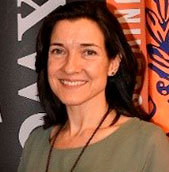
Teresa López Delgado
Bio
Architect from the Universidad Politécnica de Madrid, UPM and Master in urban planning and sustainability. PhD candidate in the Department of Urban Planning and Territorial Planning of the ETSAM-UPM.
Postgraduate in Public Administration at Maxwell School, Syracuse University, NY, US (2015-16). Specialist in International Cooperation for Development from the UPM and in Urban Management from the COAM Foundation.
She has worked for more than 20 years in positions of responsibility as director of national and international programs and has coordinated research, innovation, infrastructure and urban development projects for companies, public institutions, universities and research centers (CSIC, AECID, FCC-Infrastructures, UAM, UP Comillas, UPM, Hill Intnal. and others).
mobility patterns and impact studies
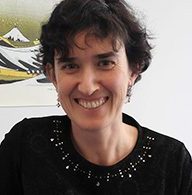
Bio
Senior Tenured Researcher. Main research topic: Air quality in public transport systems and passenger exposure (projects BUSAIR, METRO, IMPROVE LIFE). Geology Degree, Universidad Complutense Madrid, 1992; Earth Sciences PhD, Cardiff University (UK), 1999; Research Associate (Fulbright), Colgate University (New York, USA); Research Associate, Cardiff University (UK); “Ramón & Cajal” researcher, CSIC (Barcelona); Senior Researcher, IDAEA-CSIC from 2007. Director of IDAEA since 2018. Scientific Director of IDAEA Severo Ochoa Excelence Centre since 2019.

Bio
José Javier Ramasco is CSIC Tenured Scientist. He obtained a PhD in Physics at the University of Cantabria, Santander, Spain in 2002. He then held two postdoctoral positions of two years each at the University of Oporto (Portugal) and Emory University, Atlanta, USA. Afterwards, he has worked as a staff researcher at the ISI Foundation in Turin, Italy for four years, and then moved to IFISC. Jose has authored more than 81 scientific publications cited over 7000 times in the areas of Statistical Physics, Computer Science, Epidemiology and Applied Mathematics. His interests lie in the area of complexity, in particular in networks and their application to socio-technical systems including the characterisation of human mobility and urban systems.

Bio
Diego Ramiro Fariñas is Scientific Researcher at the Demographic Dynamics Group, Head of the Department of Population and Director of the Institute of Economics, Geography and Demography at CSIC. He is also currently Deputy Director of the Centre for Human and Social Sciences. His main areas of interest are the study of mortality and health, demographic analysis, historical demography, longitudinal studies and Big Data. He is the PI of LONGPOP (H2020) and participates in numerous other projects.

Bio
Research Professor leads the EGAR group at IDAEA-CSIC. Main focus on atmospheric pollution, waste valorisation and applied geochemistry. Supervisor of 26 PhD Theses. >500 articles in SCI journals. Member of LRTAP-UNECE, WHO and EC committees and working groups advising on air quality and climate directives. 2013 Award “Rey Jaime I” for the Protection of the Environment. Included in the ISI Highly Cited Scientists.

Bio
Senior Tenured Researcher. Her main research interests are air quality, atmospheric geochemistry, mitigation strategies, indoor air quality, source apportionment, and occupational exposure to nanomaterials (projects ETC/ACM, CERASAFE, MiAire, PREDEXPIN). Vice-Chair of the Scientific Advisory Panel of UN Environment’s Global Environmental Outlook (GEO6) assessment. Supervisor of 4 PhD Theses. MSc in Environmental Sciences by the Madrid Autonomous University; PhD in Air Quality, Barcelona University; “Ramón & Cajal” researcher, CSIC (Barcelona); Researcher IDAEA-CSIC from 2012.

Bio
Architect, PhD from Universidad Politécnica de Madrid. She forms part of SCHE research group at Department of Construction of IETCC-CSIC.
Her research has been developed in the field of building environmental quality. The assessment of construction elements, systems and appliances comprises the analysis of their impact in both the outdoor environment and in the indoor living conditions. She has participated in multiple funded research projects, and her work has been published in high impact scientific journals (https://orcid.org/0000-0002-5606-9950). She has worked in social housing refurbishment in projects such as REFAVIV or Habita_RES, in the rehabilitation with nature based solutions in educational centers in Life-MyBuildingisGreen, and in the study of radon mitigation in buildings in RadonFLOW and RADONCERO projects. She has coordinated the MONITOR excellence research network for monitoring indoor environmental quality and she has also contributed to the development and implementation of sustainability indicators and assessment tools, such as Verde from Green Building Council Spain, or Ecómetro, promoted by Satt architecture. Her work in the field of sustainability, health and energy efficiency in buildings has also been developed in close relationship with the industry, and has been widely disseminated both to specialized sectors and to the public and society.

Bio
Architect from the Polytechnic University (ETSAM-UPM), Master in Urban Design from The Bartlett (UCL). Master in Urban Mobility by the University Rey Juan Carlos (URJC) and Specialist Technician in Sustainable Urban Mobility Plans by the College of Civil Engineers (CICCP). Master’s Degree in Complex Systems from the Polytechnic University (ETSIAM-UPM). His experience in urbanism and mobility is developed in ARNAIZ Consultores S.L. and the Madrid Transport Consortium (CRTM). As a specialist in Urban Data Scientist has worked with uDA – urban Data Analytics. And he is currently part of Habita_RES project: New integrated tool to evaluate vulnerable urban areas. Towards energy self-sufficiency and in favour of a bio-healthy habitability model (IETcc)

Bio
Arquitect from Universidad Politecnica de Madrid (UPM), he has a PhD in Architecture from the Doctorate Program in “Sustainability and Urban Regeneration” of the Department of Urban and Regional Planning (DUyOT) of the School of Architecture (ETSAM-UPM). He is also Technical Expert on Cooperation for the Development of Human Settlements for developing countries (UPM); and Master’s Degree in Urban and Regional Planning (MUPUT), specializing in urban studies. Working at the Eduardo Torroja Institute of construction sciences (IETcc-CSIC), he has acquired relevant experience about energy efficiency and sustainability in construction and the quality of the interior environment of inhabited spaces; researching on the reduction of energy consumption, environmental impact and improvement of habitability in architecture and urbanism (https://orcid.org/0000-0002-2714-6910). From the Habitability Laboratory of the Research Group, he uses specialized methods and instrumentation for the quantification of energy consumption and indoor environment quality and health in inhabited spaces of homes and tertiary buildings. It is also an expert in the handling of tools for energy simulation of buildings. He uses geoinformatics to study related aspects of urban sociology and to transfer research to the scale of cities.
Autonomous driving and shared mobility
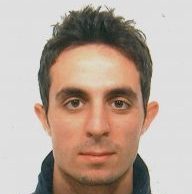
Bio
Filippo Bistaffa received the Ph.D. in Computer Science from the University of Verona in 2016. He is currently a Post-Doctoral Research Fellow at the Artificial Intelligence Research Institute (IIIA-CSIC), Bellaterra, Spain, after being a Marie Skłodowska-Curie Fellow at the same institute. His research interests comprise combinatorial optimisation problems for realistic applications (such as ridesharing and team formation) and GPU computing.
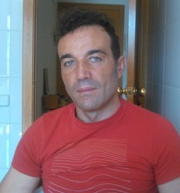
Bio
Juan A. Rodríguez-Aguilar received the Ph.D. in Computer Science from the Autonomous University of Barcelona in 2001. He is currently a Research Professor at the Artificial Intelligence Research Institute (IIIA-CSIC), Bellaterra, Spain. His research interests encompass multi-agent optimization, artificial intelligence and ethics, industrial applications of artificial intelligence, and artificial social systems. He is also a fellow of the European Association for Artificial Intelligence.
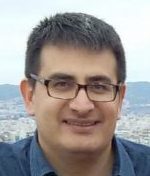
Bio
Juan Andrade Cetto is IRI’s Director. He received the BSEE from CETYS Univ. in 1993, the MSEE from Purdue Univ. in 1995, and the PhD in Robotics from UPC in 2003 (EURON Georges Giralt Best PhD Award 2005). He is since 2008 full time researcher of CSIC at IRI, and has been PI in 4 National and 6 EU projects. His areas of expertise are in the confluence of mobile robotics and computer vision.
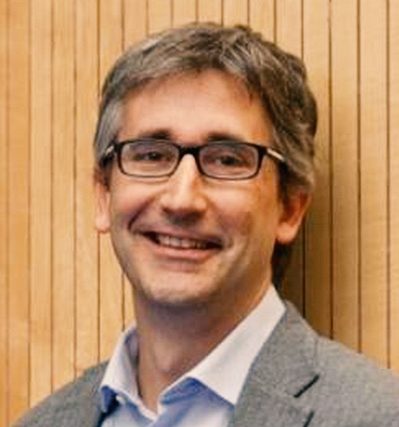
Bio
Graduated in Industrial Engineering at the Universidad Politécnica of Madrid in 2002. He received his PhD in Real-Time Computer Science, Robotics and Automatic Control at the École des Mines de Paris (France) in 2006. From 2007 to 2009 he held a position of Visiting Professor at the University Carlos III (Spain). He then received a 3-year JAE Doc fellowship at the AUTOPIA Program in the Centre for Automation and Robotics, UPM-CSIC (Spain). From 2013 until 2016 he led the Department of ADAS and Autonomous Driving Systems at Ixion Industry & Aerospace SL. He is leading AUTOPIA Program at CSIC since October 2016. He has been involved in 40 projects –15 European, 20 national and 5 private contracts with companies- of which he is or has been Principal Investigator in half of them. He is a regular speaker at various specialized forums, participates as an independent expert for the European Commission and has published more than 100 articles in international journals and conferences on connected and automated driving.

Bio
Angela Ribeiro received her BS and PhD degrees in Physics from the Complutense University of Madrid, Spain, in 1984 and 1989 respectively. In 1989, she was a postdoctoral visitor at the School of Computer Science in Carnegie Mellon University being involved in the PRODIGY project, devoted to the design and the development of a general architecture for planning and learning.
In 1990, she joined the Spanish National Research Council (CSIC) as a scientist. From 2007 to 2010, she served as the director of the System Department at the Institute of Industrial Automation (CSIC). In 2010 she joined the Center for Automation and Robotics, a joint venture of CSIC and UPM, as the coordinator of the Artificial Perception Unit. Since 2007 is the leader of the Artificial Perception Group.
Her research interests include artificial perception, pattern recognition, evolutionary algorithms, spatial knowledge representation, spatial reasoning for decision support systems, distributed systems, collective intelligence, and collective robotics. She has authored over a hundred publications in journals and proceedings, and several book chapters. She has taught diverse PhD courses in several universities.
She has led several research projects related to the implementation of the previous techniques to Precision Farming. Among others, she has been the Scientific and Technical Manager of the European project RHEA (Robot Fleets for Highly Effective Agriculture and Forestry Management – www.rhea-project.eu).
Batteries and materials

Bio
Alodia Orera, PhD in Materials Science and Engineering (2007, Universidad Carlos III de Madrid) with her thesis work devoted to the study of new materials for solid oxide fuel cell electrode applications. After working in different universities in United Kingdom (University of Surrey, University of Birmingham) she joined ICMA in 2010, where she works as a materials researcher. Her scientific interests focus on the study of new materials for energy applications, with the main target being the development of functional materials in order to improve the performance and durability of electrochemical devices such as solid oxide fuel cells (SOFCs) or lithium and lead-acid batteries. She approaches this goal in a multidisciplinary way, paying attention to the chemistry, physical properties and processing conditions in real application devices. She has participated in more than 25 research projects both of basic research and industry driven, being the principal investigator of 3 of them. She has authored over 45 SCI articles in journals of high quality and a licensed patent. Together with this research activity, she has university lecturing practise and has supervised 11 master and degree thesis as well as 2 PhD students.
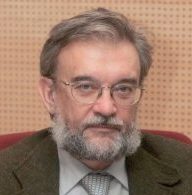
Bio
Prof. Manuel Vazquez (CSIC, 1996) has leaded many projects on magnetism of Nano and Microwires, and Sensor applications. Supervised 34 PhD students and numerous visitors. Co-author of 600 papers (h=57, 15000 cites), and 23 patents. Editor of “Magnetic Nano and Microwires” book (Elsevier, Ed.1, 2015 & Ed.2, 2020). Post-doc in Max-Planck-Institute (1981-3, A.von Humboldt) and Tech. Univ. Denmark (1985, NATO Grant). Head of Laboratory, Inst. Appl. Magnetism, IMA (1992-2000), he set up the Group of Nanomagnetism and Magnetization Processes (ICMM/CSIC, 2001). Manager of the Nanoscience and Nanotechnology National Strategic Action (2004-9). Volunteered in the IEEE Magnetics Society (Chair Intermag2008, Spain Chapter founder), and IUPAP (Magnetism Secretary; Program Chair ICM2015). Recipient of S. Velayos Magnetism Award 2016 and currently Past-President of the IEEE MagSoc (2019-20).

Bio
Javier´s scientific career has been very much linked to both Materials Science and Energy fields. Currently, he is a Ramon y Cajal Fellow in the Polymer Composite Group at the Institute of Polymer Science and Technology (ICTP-CSIC), where he has created the research line “Polymer Nanomaterials for Energy Storage”.
Nº Publications: 56 (53 publications in Q1; Proceedings: 7; Book Chapter: 1). Index h: 24; Nº citations: 4303; Source: SCOPUS). He has published several articles in high-impact factor journals such as Nature Energy x1 (IF= 46.859), Science x3 (IF=37.205), Energy and Environmental Sciencex3 (IF=30.067), Advanced Materials x1 (IF=21.950), Angewandte Chemie International Edition x1 (IF=12.102), Chemistry of Materials x1 (IF=9.890), Journal of Materials Chemistry A x5 (IF=9.931), Macromolecules x5 (IF=5.914), Soft Matter x2 (IF=3.889). Patents: 3. Participation in Research Projects: Total 32; Principal Investigator: 6; International Projects: 15; National Projects: 11. Industrial: 6.
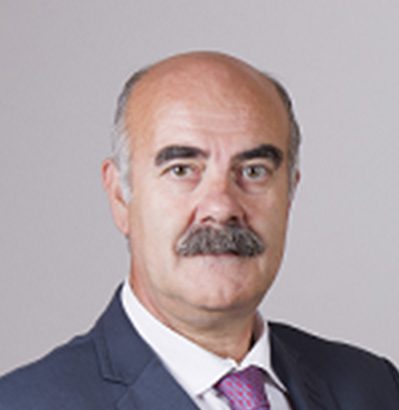
Bio
Félix Antonio López (1958) receiver his PhD in Chemical Sciences from the University of Valladolid (1987). Researcher and worked on obtaining raw materials via physical-, hydro-, and pyrometallurgical techniques, the treatment of residues via stabilizing/solidification techniques, remediation, pyrolysis, and the production of secondary raw materials and recycled products. He has published some 197 scientific papers. He is the author of 23 patents, eight of which have been transferred to industry via exploitation agreements and licensing. He is also the founder and promoter of B-Circular, a CSIC spin-off devoted to exploiting technologies for the recycling of end-of-life wind turbines and wastes from the aeronautical industry; he is currently the company’s Director of R&D+i. Finally, he was the recipient of the 2012 R Prize for the best innovative project in the area of materials recycling, and was finalist in the IV and V Calls from the Repsol Foundation Entrepreneurs’ Fund competition (2014 and 2015). In 2020 he was awarded the ENEL-INNOCENTIVE award.

Bio
Ana Arenillas graduated from University of Oviedo, Spain, where received her M.Sc. in Chemistry and Ph.D. in Chemical Engineering in 1994 and 1999, respectively. She joined INCAR-CSIC in 1995 where she has been working since then, with different stays in Leeds University (UK) between 1995-1997 and Nottingham University (UK) between 2003-2004. Her research in recent years has focused on the optimization and production of materials using the sol-gel methodology, through a fast, economical and scalable process based on microwave heating. The properties of these materials can be designed and optimized for a wide range of applications such as (i) gas separation and H2 storage, (ii) energy storage in electrochemical devices, (iii) thermal insulation, (iv) catalytic processes, etc. She leads several research projects on these fields. Cofounder of the spin-off Xerolutions Ltd.

Bio
Ana B. Garcia is a Senior Research Scientist at the INCAR-CSIC since 1988. She graduated in chemistry from the University of Oviedo (Spain) where she received a M.Sc and a Ph.D in chemistry. Her research activity is primarily focused on the identification as well as preparation of novel eco-friendly and efficient electrode materials for electric rechargeable batteries (lithium-ion, sodium-ion, potassium-ion, dual-ion, flow redox), to be further applied both in electric vehicles and large-scale energy storage systems from renewable energy sources, thus contributing to the progressive transition from an energetic system mainly based on fossil fuel to another safer and sustainable. To carry out this research activity, she has led several regional, national and international competitive I+D projects as well as research contracts with national e international companies. During her career, she has made stays in foreign R & D renowned centers such as The Pennsylvania State University (USA), Pittsburgh Energy Technology Center (USA), University of British Columbia (Canada), Ecole Normale Superieure/CNRS (France) or CETMIT/CONICET (Argentina)

Bio
Natalia Rey-Raap achieved her degree in Chemical engineering and a master’s degree in Energy efficiency and sustainability at the Jaume I University (Spain), in 2009 and 2011, respectively. In 2012, she obtained the Spanish FPI scholarship and started her scientific career as a PhD at the Institute of Carbon Science and Technology from the Spanish Research Council (INCAR-CSIC). Her research was focused on the synthesis of carbon materials with tailored properties for different applications: thermal insulation, lithium-ion batteries and supercapacitors. In 2016, after achieving her PhD degree in Materials Science and Technology, she moved to Portugal to join the Catalysis and Carbon Materials research group (LCM, University of Porto) as a postdoctoral researcher, where focused her research on the development of bifunctional electrocatalysts for Unitized Regenerative Fuel Cells (URFC). In 2021 she moved back to Spain to join the SYSTAM group at the University of Oviedo, and in 2022 she joined MATERNERCAT research group at INCAR-CSIC to focus on the development of nanostructured materials for batteries and URFC. During her career, she had held short stays abroad at the University of Sheffield (UK), in the Institute Jean Lamour (France) and at the University of Liege (Belgium).

Bio
Ignacio Cameán studied Chemistry in the University of Oviedo being graduated in 2004. In 2005 he got a grant from the Spanish Ministry of Education and Science for doing the doctoral thesis in MATENERCAT group. He obtained the PhD in 2011. His research activity has been based on the development of different novel and eco-friendly carbon materials and the study of their application in different kinds of rechargeable electric batteries (lithium-ion, sodium-ion, dual-ion and flow redox) for both electric vehicles and large-scale energy storage systems from renewable energy sources. He has participated in national, regional and international R&D competitive projects (some of them as the project leader) and R&D contracts with private companies. He has been awarded by the Iberdrola Foundation (Scholarships for research in energy and environment, 2016), the CSIC Foundation (2nd edition of ComFuturo Program, 2018) and by the French government (Make Our Planet Great Again Program 2018).
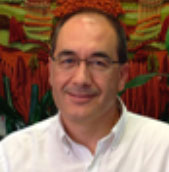
José F. Fernández | CSS
Batteries and materials
website
Bio
Jose F. Fernandez is the leader of the Ceramic for Smart System Group (CSS). He is Professor in Materials Technology at the Instituto de Cerámica y Vidrio, CSIC, Madrid, Spain. He obtained his PhD in Physics in 1990 by the Universidad Autonoma de Madrid. Prof. Fernandez possesses a large experience in ceramic processing of functional ceramics which properties are based on complex micro and nanostructures. He is authored and co-authored over 365 peer-reviewed scientific publications, H=45 and >8100 citations, 63 invited talks; 37 patent families (> 170 patents in national phases, 14 patents licensed to companies and 1 licensed industrial secret) and the foundation of 2 spin-off companies of the CSIC in functional micro-nanoparticles. He has been awarded with the Gold-Alfa Award, the Fellowship of the European Ceramic Society, the EPSILON Award of the Sociedad Española de Cerámica y Vidrio. In 2021 was awarded by RSEF-FBBVA in Physic, Innovation and Technology.
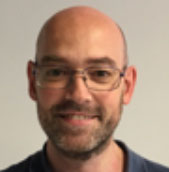
Alberto Moure | CSS
Batteries and materials
website
Bio
Alberto Moure obtained his PhD in Physics science by the Universidad Autonoma de Madrid in April 2003, developed at the Instituto de Ciencia de Materiales de Madrid (CSIC). From January 2008 to now, he worked in the Departmento de Electroceramica of the Instituto de Ceramica y Vidrio (CSIC), and since April 2012 within the Ceramica para Sistemas Inteligentes group with a permanent position since 2023. He is the author and co-author of 66 scientific articles, with >1300 cites and H=20. He is an inventor in 2 licensed patents. He has participated in a several national, European and industrial project, obtaining a budget >800,000 €..
Hydrogen technologies and biofuels

Bio
Dr. Mª Jesús Lázaro (Dr. in Chemistry) is Research Professor at the CSIC at the Instituto de Carboquímica (ICB_CSIC). She has participated in 72 Projects and 14 contracts, in which 45 has been the Principal Researcher. As a result, she has published 250 articles in indexed scientific journals (H Scopus = 47), has directed 17 doctoral theses and is the author of 6 patents. Since October 2015, she is the Institutional Delegate of CSIC in Aragon. In addition, she is the president of the Spanish Coal Group and the European Carbon Association.
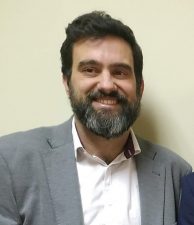
Bio
Dr. Miguel A. Laguna Bercero is a Tenured Scientist from CSIC at the Aragon Institute of Materials Science (ICMA). He has participated in 25 research projects, 6 of them as PI, as well as 7 industrial contracts. He is co-author of one licensed patent and one transfer of know-how with Saint-Gobain CREE and he has published 70 indexed publications, including two invited reviews and three book chapters. He has supervised 2 PhD thesis (another two ongoing), and given 13 invited talks in international conferences. His h index is 23, with more than 2100 citations.

Bio
PhD in Chemistry (Complutense University, Madrid). Research Scientist at CSIC, head of the Group of Sustainable Chemistry and Energy, Secretary of the Spanish Hydrogen Association, President of the National Standardization Committee (UNE) for Hydrogen Technologies, and member of different advisor committees for government agencies. His main research area is focused in catalytic processes for clean energy production.

Bio
Prof. Maria Serra (graduate in Physics, 1995, PhD in Chemical Enginnering, 2000) is Associate Professor of the Automatic Control Department at Universitat Politècnica de Catalunya since 2008. She is currently the Head of the Automatic Control Group in the Insitut de Robòtica i Informàtica Industrial (IRI). Her research interests are modeling and control of energy systems, focusing on fuel cell-based systems and other hydrogen technologies. She has taken part in 16 Spanish and European research projects in the field and has published more than 50 articles in specialized scientific journals and international conferences.
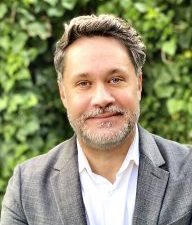
Bio
Born in Fuensanta (Jaén), he graduated in Chemistry from the University of Granada (1987-1992) and obtained a doctorate from the Polytechnic University of Valencia in 2002 (Special Thesis Prize, UPV-2002). Fullbright Postdoctoral Fellow (2002-2004) at the Department of Chemical Engineering, University of California at Berkeley (USA), Ramón y Cajal (September 2004-June 2007) and CSIC Senior Scientist and UPV Associate Professor (Department of Chemical and Nuclear Engineering) since June 2007. His research work includes the development of catalysts and their application in energy production (biodiesel, renewable hydrogen), CO2 recovery, ozone decomposition and integral use of industrial waste flows. He has participated in 18 research contracts (7 as IP) financed by companies, 22 research projects financed by public entities (in 21 as IP, 4 EU). He has published 42 articles in prestigious international journals and is co-author of 26 worldwide patents, 22 of which have been transferred to industry and 2 in industrial exploitation.
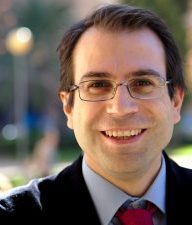
Bio
Dr. José M. Serra (1976) carried out his Doctoral Thesis at ITQ under the direction of Prof. A. Corma in collaboration with the Institute Français du Petrole. He carried out a two-year post-doctoral stay at Forschungszentrum Jülich (Germany), working on the development of nanostructured SOFC cathodes as well as ion-conducting membranes. In 2006 he returned to ITQ where he is currently in charge of the research line on fuel cells and ion-conducting membranes. His scientific activity is mainly focused on the application of catalysis and materials science (development of components for solid oxide fuel cells and development of mixed ion-electron conductive membranes for oxygen and hydrogen separation). He is co-author of 146 articles and 21 patents in the field of catalysis and energy and is involved in several FP7 projects related to ion membranes and proton conductive fuel cells: EFFIPRO, NASA-OTM, DEMOYS, GAMER, ELEKTRA, eCOCO2, etc.

Bio
Dr Valiño has a degree in Physics at University of Zaragoza (Spain) (1984), a PhD at the same university (1989). He hold a postdoctoral fellowship at University of Stanford/ NASA Research Center at Ames (USA) (1990-1991). He has also a degree in Economics at UNED (Spain) (2016) and an official master degree in Economics at University of Zaragoza (2017). After some teaching positions at University of Zaragoza, he joined CSIC in 1991, being currently Research Scientist. Since July 2012 he has been director of LIFTEC. His research activities have focused on the modeling and numerical simulation of fluid mechanics and transport phenomena in environmental and industrial problems. He has various published works in probability density function methods in turbulent diffusion, chemical reactions, combustion, filtering, pollutant dispersion and since the early 2000s, fuel cells and use of hydrogen in renewable energy. Lately, modeling and simulations have been extended to the study of electrolyzers and flow batteries. He is also doing research on the economic impact of the transition to a carbon-free economy. He has developed an intense collaboration with industry, having worked in more than 60 research projects.

Bio
Dr. Isabel Suelves Laiglesia (Dr. in Chemistry) is Scientific Researcher, from CSIC at the Instituto de Carboquimica (ICB.CSIC). Since February 2019 she is the Director of the Institute. She has participated in around 40 research projects and contracts, 12 of them as Responsible Researcher. She has published 134 articles in international SCI journals, (index h: 35). She has supervised 6 Doctoral Thesis and she is co-author of 2 national and 1 international patents. She is founding partner of the technological company NANOGRAPHITE S.L. She is the Treasurer of the Spanish Coal Group (GEC) and member of the Spanish Catalysis Society and the Spanish Hydrogen Association.

Bio
Dr. Mª Victoria Martínez Huerta is Senior Scientist from CSIC at Institute of Catalysis and Petrochemistry (ICP) and Head of the Electrocatalysis Group for Energy and Environment. Its research work has been linked to 30 national and 9 international projects. Dr. Martínez Huerta has published more than 85 scientific publications and book chapters with an h=31 index. She is co-inventor of two patents in the area of electrocatalysts for fuel cells. She has co-directed three PhD Thesis in the field of electrocatalysis, and is currently co-directing four PhD Thesis, one of which is part of a European ITN project. Its lines of research are linked to the development of electrocatalysts for energy and environmental applications that involve a reduction in the environmental impact derived from the use of fossil fuels, mainly in those applications that use hydrogen as an energy carrier such as fuel cells, electrolysers and unitized regenerative fuel cells.

Bio
Raúl Mario del Toro Matamoros has received his Ph.D. degree in Computer Science & Telecommunication Engineering from the Autonomous University of Madrid in 2011, the M.S. degree in Automation and Robotics from the Polytechnic University of Madrid in 2009 and the B.E. degree in Automation Engineering from Universidad de Oriente, Santiago de Cuba, in 1997. Currently, he is Responsible Researcher of the Laboratory of Renewable Energies and Hydrogen (LERH) at the Centre for Automation and Robotics (UPM-CSIC). Previously, he was linked as research engineering at the Institute of Industrial Automation of the CSIC and as postdoctoral researcher at the Polytechnic University of Madrid (UPM), where he has participated in several R&D projects, both nationally and internationally. In 2014 he was awarded the postdoctoral fellowship “José Castillejo”, for a research stay at the Technical University of Delft in the Netherlands. Between May 2018 and February 2022, he worked as a researcher and Senior Consultant at the company Indra Soluciones TI, at the Energy Business Area. His research interests include smart systems engineering, model-based design, cyber-physical systems engineering, distributed control systems, System of Systems, self-adaptive systems, embedded systems, Artificial Intelligence, fuzzy logic, artificial neural networks, optimization heuristics, modelling, control and monitoring of systems for the generation, storage and distribution of energy from renewable sources.

